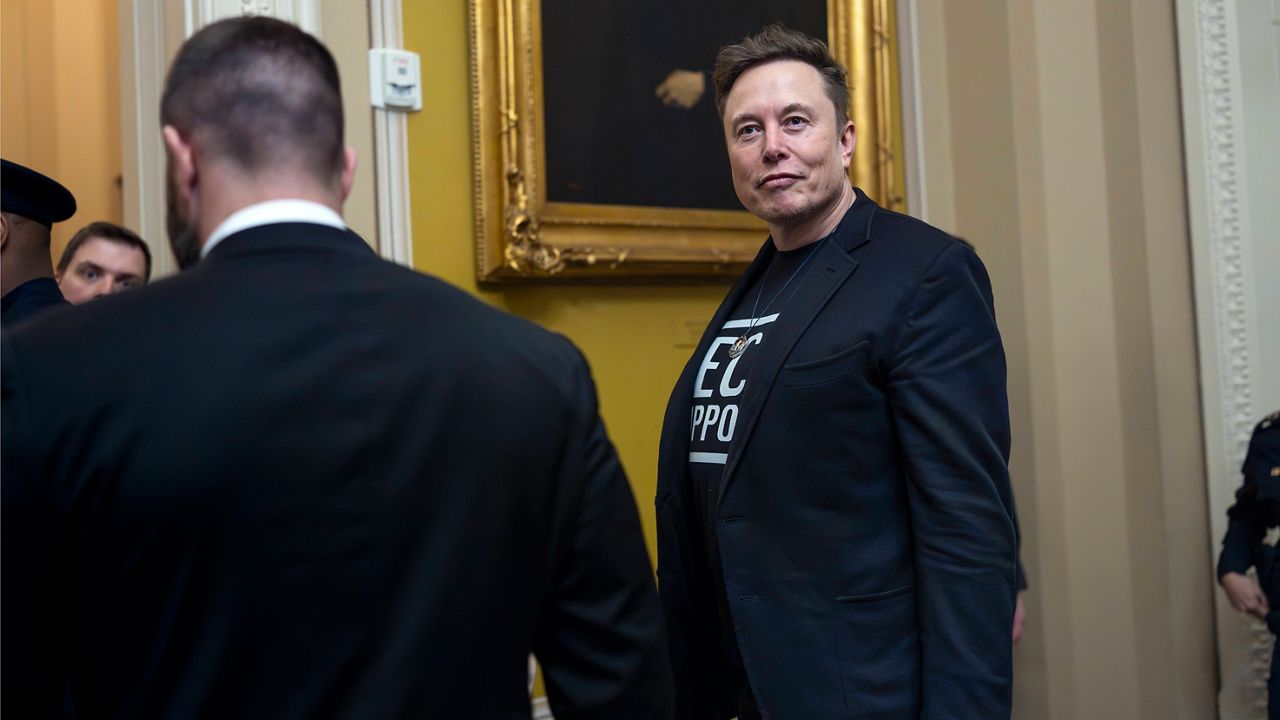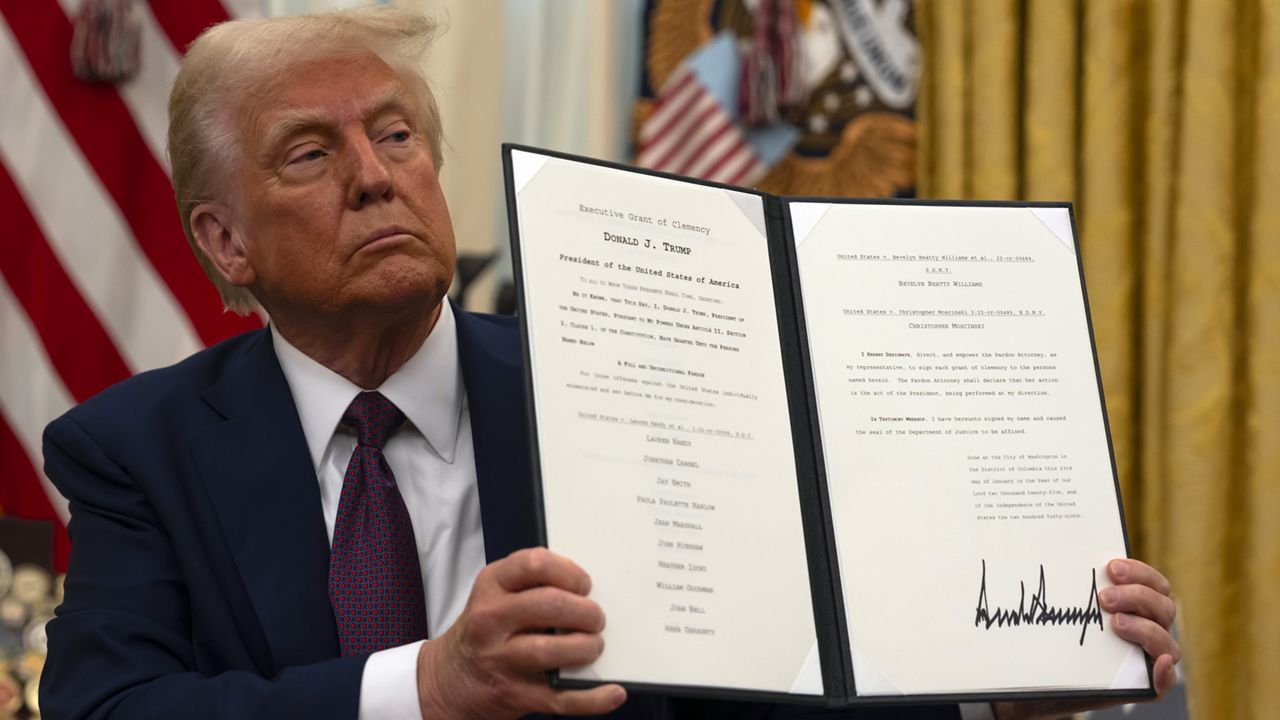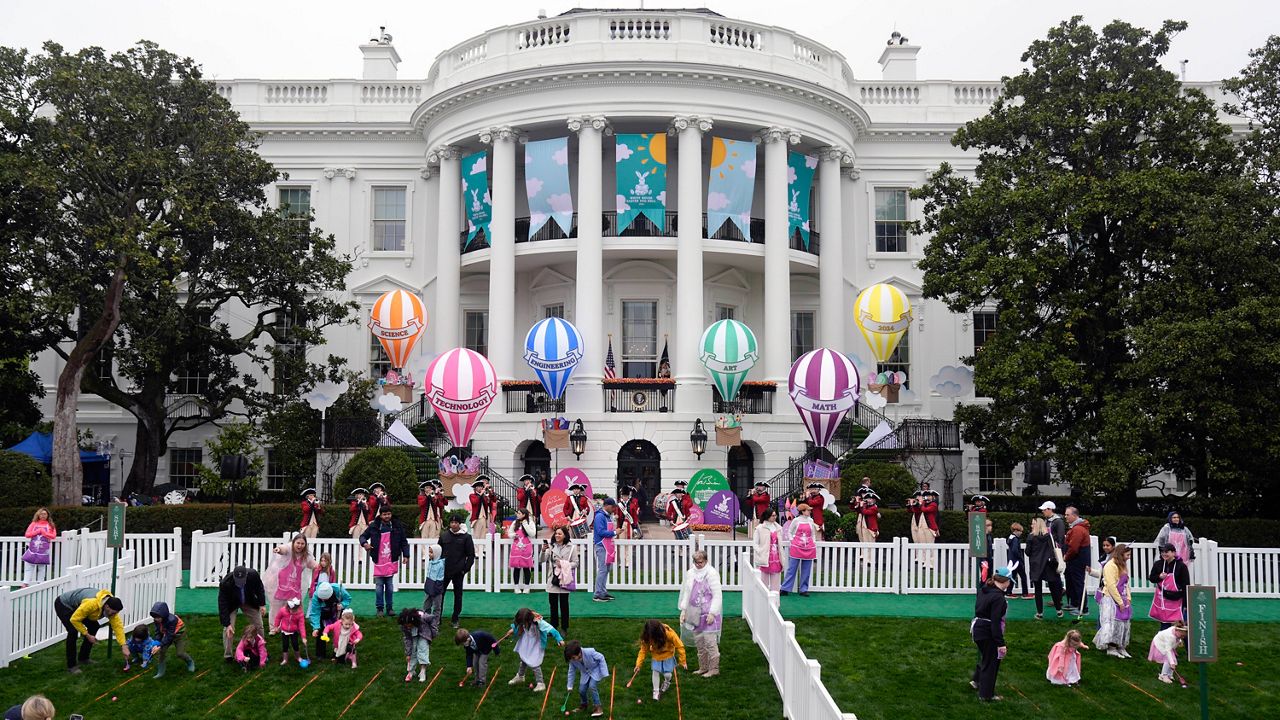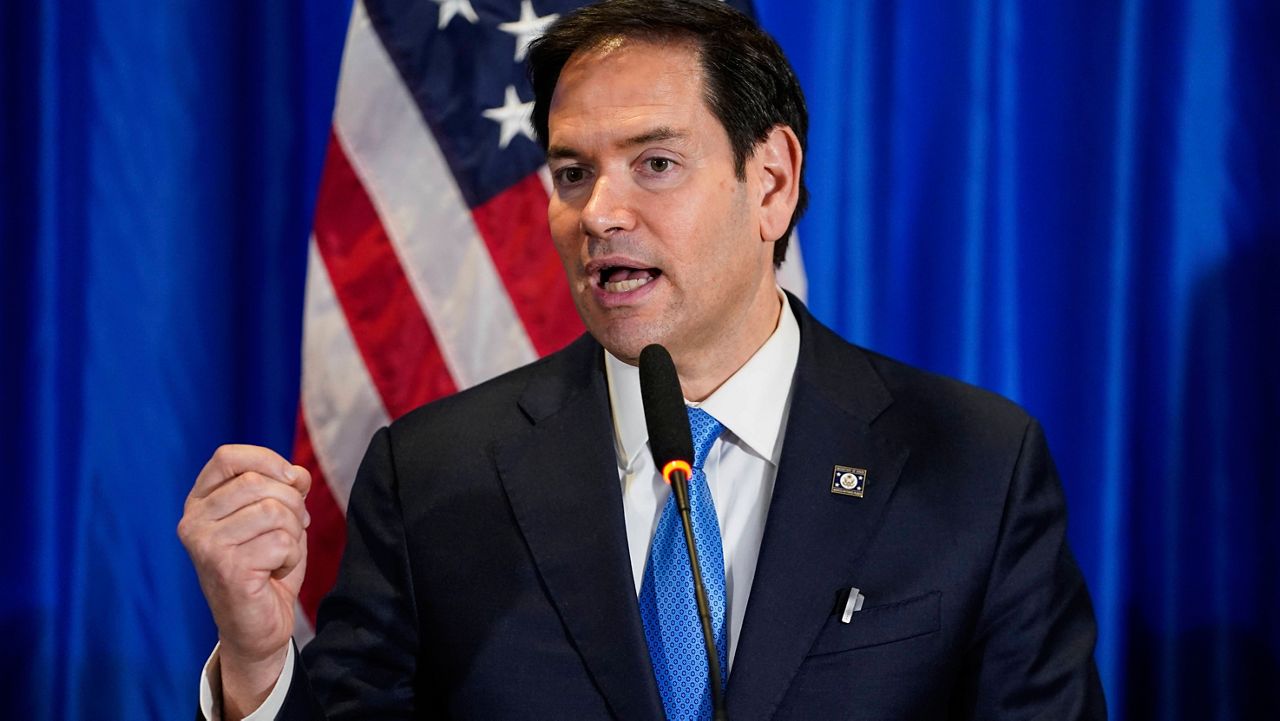In a speech Wednesday evening, not far from the U.S. Capitol, President Joe Biden warned voters that democracy itself is on the ballot in next week's midterms.
"As I stand here today, there are candidates running for every level of office in America, for governor, for Congress, for attorney general, for secretary of state, who won’t commit to accepting the results of the elections they’re in," Biden said. "That is the path to chaos in America. It’s unprecedented, it’s unlawful, and it is un-American."
"Make no mistake, democracy is on the ballot for all of us," the president said, adding: "What we're doing now is going to determine whether democracy will long endure."
Biden spoke bluntly about last week's attack on Paul Pelosi, the husband of House Speaker Nancy Pelosi, and laid the blame for heightened political tensions at the feet of former President Donald Trump and his false claims of a stolen election.
"American democracy is under attack because the defeated former president of the United States refused to accept the results of the 2020 election," Biden said. "If he refuses to accept the will of the people, if he refuses to accept the fact that he lost, he’s abused his power and put the loyalty to himself before loyalty to the Constitution. And he’s made a big lie an article of faith in the MAGA Republican Party, the minority of that party."
But is it a message that’s resonating with voters? It's not quite clear.
A new ABC News-Washington Post poll certainly shows that Americans are concerned about the threat of politically motivated violence. The survey, released Thursday, shows that nearly 9 in 10 Americans are worried about an increased risk of political violence in the U.S., including 63% who responded that they are "very concerned."
The survey was conducted the week after the Paul Pelosi attack, and found that respondents blamed Republicans slightly more than Democrats more for political violence, 31-25 – while 32% believe both parties are equally to blame.
What's also unclear is if that is what's motivating Americans at the ballot box.
A New York Times-Siena College poll from late last month, found that 71% of likely voters believe democracy is at risk, but only 7% identified it as the most important problem facing the country -- well behind the economy at 26% and the cost of living at 19%.
“We're living in a chaotic environment," Hank Sheinkopf, an independent political strategist, told Spectrum News. "And when you have chaos, and you have disorder, people tend to vote out the party in power. That's why this is happening. It's not about democracy."
But a recent NPR/PBS NewsHour/Marist poll paints a slightly different picture: While only 26% of those polled said preserving democracy was top of mind when thinking about voting in the midterms, it was the top issue overall among Democratic voters at 42%. The top issue overall was inflation with 36%, including 54% of Republican respondents.
Sheinkopf said at a time of anxiety about the economy and crime, a message about the future of democracy is a tough sell.
Former Secretary of State Hillary Clinton appeared on CNN this week and agreed the state of the economy is hard to ignore.
"It's really difficult to tell people what is going to happen when, understandably, they are focused on the present," Clinton told CNN.
The White House told Spectrum News that Biden’s focus on threats to democracy is not new – in September, the president delivered a fiery speech in Philadelphia, where he warned that "equality and democracy are under assault" – but that it’s hardly his only focus.
“The President talks about all of these issues," White House principal deputy press secretary Olivia Dalton said. "Even just hours before he delivered the speech last night on protecting our democracy, he spoke here at the White House about the economy."
One expert warned there may be a disconnect between voters’ concerns about threats to democracy and whether they think they can do anything about the issue.
"It's hard to see how voting for one party or the other for many people how would be a solution to the problem," Andrew Seligsohn, the president of Public Agenda, a nonprofit organization dedicated to strengthening democracy, told Spectrum News.
Experts say another reason this issue may not be decisive in the election is that many Republicans and Democrats perceive threats to democracy through a partisan lens, with each party blaming the other for the problem.










